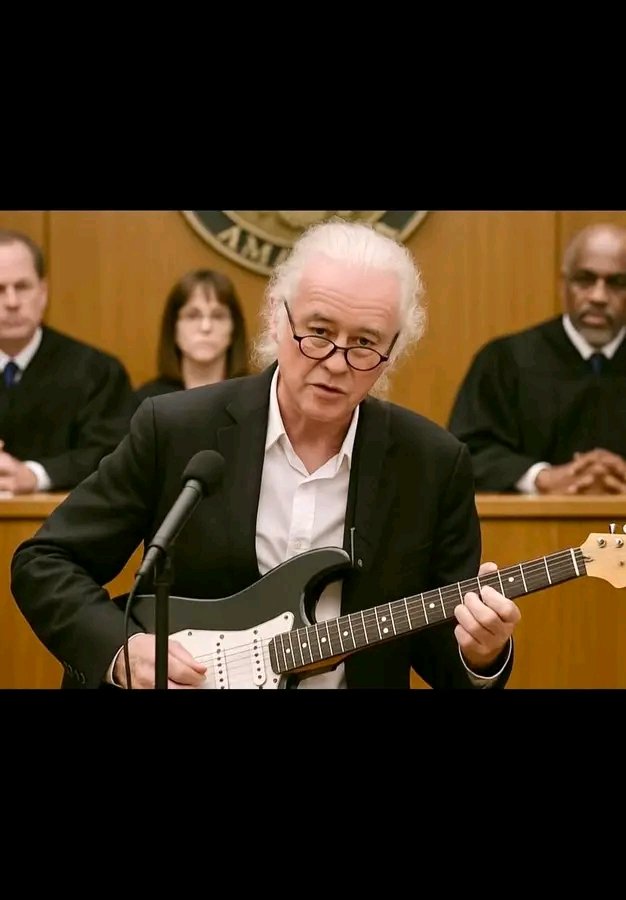“In 2016, A Stairway to Justice: Jimmy Page, a Courtroom Guitar, and the Battle to Defend Rock’s Most Iconic Riff”
In 2016, a courtroom in Los Angeles became the unlikely stage for one of rock music’s most dramatic legal showdowns. At the center of it all was Jimmy Page—guitarist, producer, and founding member of Led Zeppelin—who stood accused of stealing the iconic opening riff of “Stairway to Heaven,” one of the most revered songs in music history. The lawsuit, brought forth by Michael Skidmore on behalf of Randy Wolfe’s estate (better known as Randy California of the band Spirit), alleged that Page and Robert Plant had lifted the melody from Spirit’s 1968 instrumental “Taurus.” The stakes were high—not just financially, with $79 million on the line—but also historically, with Led Zeppelin’s legacy under scrutiny.
As the trial unfolded, fans and critics alike watched with bated breath. Jimmy Page, calm and composed, took the stand and emphatically denied the allegations. He testified that he had never heard “Taurus” until recently, and that any similarity between the two songs was coincidental—a product of shared musical traditions rather than theft. But it wasn’t just his words that swayed the court. In a moment that felt pulled from a rock-and-roll film script, Page picked up a guitar in front of the judge and jury and played both pieces. With clarity and precision, he demonstrated the differences in structure, rhythm, and progression between “Stairway to Heaven” and “Taurus.” It wasn’t just a performance—it was a defense of creative authenticity.
Ultimately, the jury ruled in favor of Led Zeppelin, deciding that “Stairway to Heaven” was not plagiarized. The band walked out of court with their reputations untarnished and their artistic integrity upheld. For many, it was more than a legal victory—it was a reaffirmation of the song’s enduring legacy. “Stairway to Heaven” wasn’t just a track accused of theft—it was, and remains, a masterwork born from the soul of rock.
